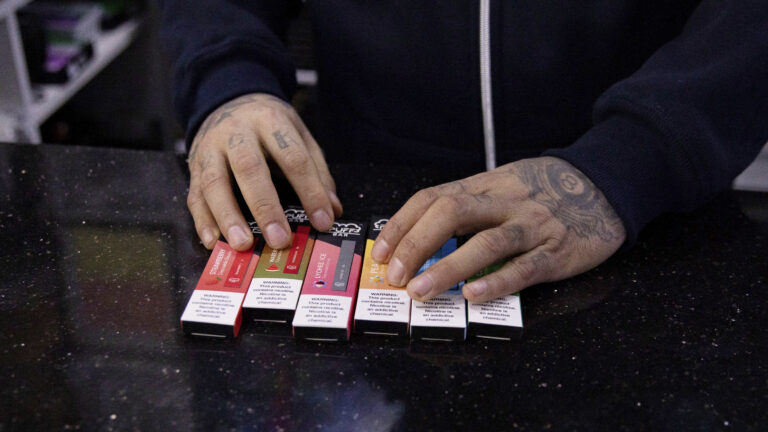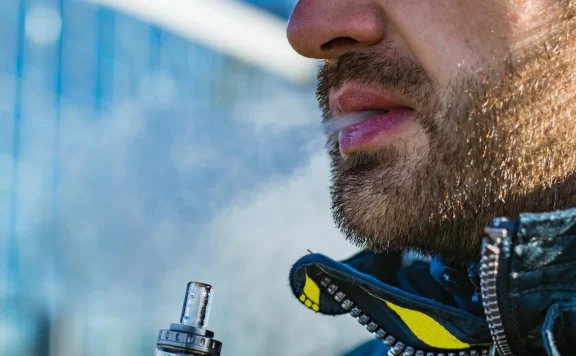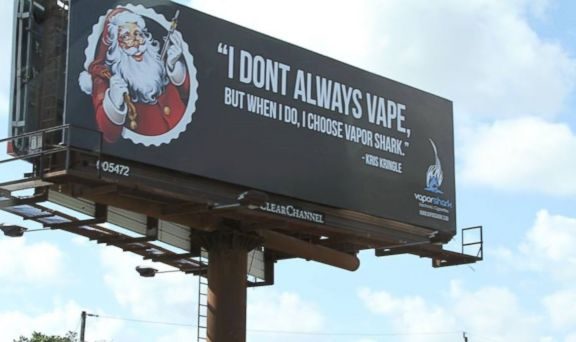On Tuesday, Californians decisively approved a measure to ban flavored vapes and tobacco products in the state.
The decision makes California the biggest state to outright prohibit these goods, which are also prohibited in a handful of smaller states like Massachusetts, New Jersey, and Rhode Island.
Since flavored items are so widely favored by youngsters, regulators have focused on them in particular. According to survey data from the Centers for Disease Control and Prevention that was just made public, more than 84 percent of younger generations who vape admitted to using flavored products.
In addition, California’s act would restrict menthol cigarettes, which federal regulators have advocated banning nationwide because they believe that they are easier to start and more difficult to stop using. Additionally, research reveals that Black smokers strongly favor menthol cigarettes.
The vote on Tuesday is the most recent development in a battle that has lasted over two years between California lawmakers and the cigarette sector. The state’s taste ban was initially enacted by lawmakers in 2020, but the tobacco industry immediately began a multimillion-dollar crusade to put the measure to a referendum.
The American Lung Association’s national assistant vice president of state public policy, Michael Seilback, remarked, “Tonight, Californians once again voted in favor of safeguarding kids and standing up to Big Tobacco. This shifts the playing field.”
Businessman Michael Bloomberg provided the overwhelming majority of the financial backing for the initiative in favor of a taste ban. (Bloomberg Philanthropies also contributes to STAT’s coverage of the economic factors affecting health, but does not have any say in how we do our reporting.)
On Wednesday, R.J. Reynolds filed a federal lawsuit seeking a federal judge to halt the implementation of California’s prohibition. According to the lawsuit, only federal legislators have the authority to outlaw particular tobacco products. Reynolds and other tobacco firms have attempted to overturn taste bans in the past on similar grounds, but multiple federal judges have determined that those bans are legal.
A judicial battle over a previous Los Angeles County prohibition may also potentially decide the outcome of the California prohibition. R.J. Reynolds, a cigarette giant, is currently contesting the initiative on the grounds that local governments and states are not permitted to ban the sale of tobacco goods under federal tobacco legislation. Although a federal appeals court determined in March that states and localities do have the authority to impose a ban on flavored products, the business requested a review of the ruling by the Supreme Court in October.
According to the lead senior staff attorney for federal regulation at the Public Health Law Center, Desmond Jenson, if the Supreme Court accepts that case and rules in favor of R.J. Reynolds, it could jeopardize California’s ban as well as those laws already in place in other states and municipalities.
A Supreme Court ruling is “quite good cause for alarm,” according to Jenson. “On the grounds of federal preemption, no court at any level has ever struck down a policy forbidding the sale of flavored tobacco products, but that doesn’t mean the Supreme Court couldn’t rule differently and that decision would apply elsewhere,” Jenson states.
As flavored vaping products are less dangerous than combustible cigarettes, pro-vaping groups are expected to poke holes in California’s proposed ban for denying adult tobacco users access to them. Despite the CDC’s estimate that 3.7 percent of grownups countrywide vape, there is no solid information on how many adults now use flavored vaping products.
Advocates for tobacco control maintain that prohibiting flavors will eventually prevent people, especially children, from becoming addicted to nicotine. They intend to exploit California’s newly approved laws to exert further pressure on other states to enact such restrictions.
“We are not going to give up until we have removed these items from all communities and are able to combat big tobacco’s attempts to hook a new generation of children on their products,” added Seilback.
Advocates also informed STAT that they hoped the restriction would let federal regulators know that people favor taste prohibitions in general.
According to Matt Myers, president of the Campaign for Tobacco-Free Kids, “it will send a clear signal to the Biden Administration and the FDA that there is huge backing for eradicating the flavored e-cigarettes that have exacerbated the youth e-cigarette pandemic and eventually ending the tobacco sector’s targeting of the African American community with menthol cigarettes.” (Bloomberg Philanthropies provides financial support for the Campaign.) The California ban, according to Myers, was “the most consequential tobacco control move made in the United States in decades.”




